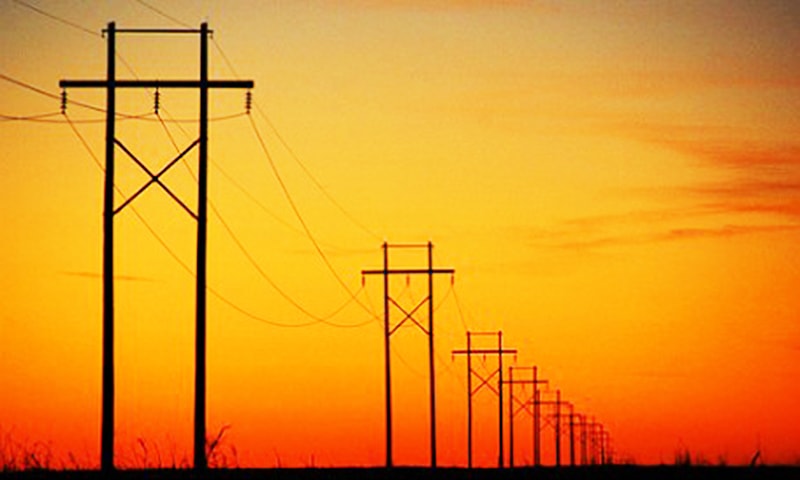ISLAMABAD: The Managing Director of Central Power Purchase Agency (CPPA) — an umbrella organisation of all power generation, transmission and distribution companies — tendered his resignation on Wednesday amid a raging controversy over LNG supply and payment mechanism.
Mohammad Amjad, the highest corporate official in the power system, is the third major energy sector figure to quit over the past three weeks as the government struggles to put in place a seamless system for the import, transport, sale and financing for liquefied natural gas (LNG).
Although Mr Amjad is reported to have submitted his resignation citing personal reasons, sources close to him said he was under great pressure from three sides to sign three different agreements, which he felt were not in the interests of his organisation which is responsible for all electricity purchases from various public and private power companies and its subsequent sale to distribution companies.
Take a look: Tripartite LNG deal in limbo as stakeholders lock horns
An experienced hand who as a key Wapda official in the late 1990s, spent testing times during the previous PML-N government which launched investigations against Independent Power Producers (IPPs) under Saifur Rehman’s dreaded Ehtesab Bureau, Mr Amjad being aware of the repercussions of signing binding agreements involving tens of billions of dollars opted to part ways, one of his close friends told Dawn.
NTDC/CPPA head resigns following pressure to sign deals taking responsibility for supply chain liabilities
Last week, Sui Northern Gas Pipelines Limited’s Managing Director Arif Hamid was compelled to resign after the petroleum ministry issued orders for termination of his contract because of his resistance to take unquantified but large liabilities for SNGPL in case of a potential failure by LNG importers and suppliers to inject LNG into the transmission system.
Mr Hamid’s successor, Uzma Adil Khan, had also written a strongly-worded letter to the petroleum ministry for putting the SNGPL in a tight spot and refused to sign the LNG agreement that her predecessor also had avoided signing.
Consequently all the liabilities which were previously being parked with SNGPL were transferred to CPPA and the National Transmission and Despatch Company (NTDC), in a bid to convince the SNGPL management to ‘initial’ the gas sale agreement, the reimbursement agreement and the tripartite agreement on September 21 with Sui Southern Gas Company (SSGC) and Pakistan State Oil (PSO). This tripartite agreement was one of the key requirements for yet to be concluded long-term agreement with Qatargas for LNG supply.
These agreements have yet to be approved by the boards of directors of the three companies, the Economic Coordination Committee (ECC) of the Cabinet and the Oil and Gas Regulatory Authority (Ogra) before their formal signing, officials said. In legal jargon, initialling an agreement is not a binding liability unless it attains finality after “formal signing of agreements” with all the necessary approvals.
But the reimbursement agreement that the CPPA chief was also compelled to ‘initial’ was not the only reason for his resignation. Mr Amjad also was under pressure to sign a power purchase agreement with the 1200MW LNG-based Bhikki Power Project, which he was not ready to do unless its security package was cleared by the Private Power and Infrastructure Board (PPIB) and approved by the ECC and the CPPA’s board of directors. The launching of Bhikki project, one of three LNG-based Government Power Projects (GPPs), has seen a few postponements in recent weeks, mainly because of legal complications.
A power ministry spokesman declined to comment on Mr Amjad’s resignation. Sources privy to the development, however, explained that the fuel supply and payments to fuel suppliers and power producers were the responsibility of the CPPA under the present power policy, which then stood transferred to IPPs and gas suppliers under back-to-back agreements.
The official agreed that after the departure of top three officials from three key organisations in the supply chain, even the ECC and boards of directors of all gas and power companies would have to take extra care in removing the legal lacunae to ensure transparency.
On September 6, the government’s top legal mind in the power sector, Barrister Asghar Khan — who headed the PPIB legal department, tendered his resignation after developing serious differences over issues relating to billions of rupees in capacity charges to IPPs and transactions relating to new power projects on coal and liquefied natural gas.
Published in Dawn, September 24th, 2015
On a mobile phone? Get the Dawn Mobile App: Apple Store | Google Play











































